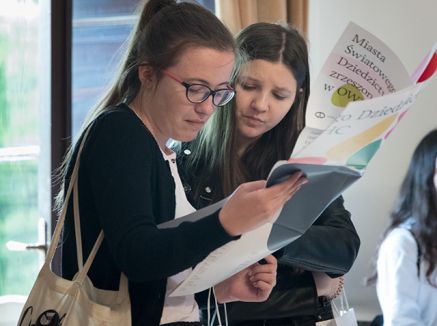Villa Decius Visegrad Heritage Lab
Inauguracja dyskusji na temat działania i współpracy w rzeczywistości pełnej ograniczeń oraz konieczności adaptacji działań edukacyjnych i kulturalnych.
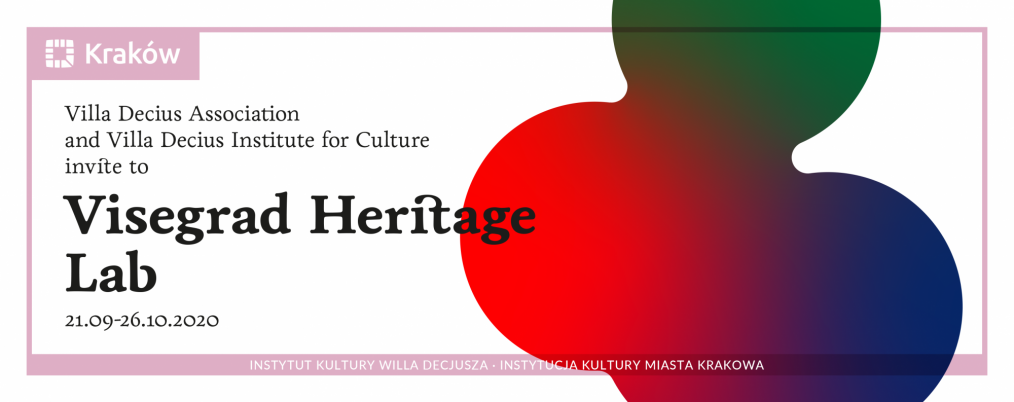
Villa Decius Visegrad Heritage Lab, to rozciągnięta w czasie dyskusja na temat działania i współpracy w rzeczywistości pełnej ograniczeń oraz konieczności adaptacji działań edukacyjnych i kulturalnych, organizowana za pośrednictwem platformy Zoom w terminie 21.09-26.10.2020. Organizując Laboratorium, Stowarzyszenie Willa Decjusza we współpracy z Instytutem Kultury Willa Decjusza za cel stawia sobie zrealizowanie formatu, który pozwoli na spotkanie uczestników i ekspertów oraz poszukiwanie rozwiązań wspólnych problemów i wyzwań spowodowanych pandemią COVID-19. Do projektu zaproszeni zostali absolwenci elitarnych programów takich jak Visegrad Summer School, Visegrad Academy of Cultural Management oraz Write the Game V4, flagowych programów Stowarzyszenia Willa Decjusza od lat kształcących przyszłych liderów w Europie.
Program
(wydarzenia będą transmitowane na oficjalnym profilu Facebook)
Poniedziałek, 21.09 (wydarzenie otwarte):
18.00 - Inauguracja projektu Villa Decius Visegrad Heritage Lab
Amb. Edit Szilágyiné Bátorfi, Dyrektor Międzynarodowego Funduszu Wyszehradzkiego
Jan Piekło, Prezes Zarządu Stowarzyszenia Willa Decjusza
Dominika Kasprowicz, Dyrektor Instytutu Kultury Willa Decjusza
18.15 – Culture in the times of pandemia – impact and response tracker - panel dyskusyjny
Magdalena Doksa-Tverberg (PL), Zastępca Dyrektora Departamentu Kultury i Dziedzictwa Narodowego, Miasto Kraków
Zora Jaurova (SK), Przedstawicielka Postępowej Słowacji
Dániel Levente Pál (HU), Dyrektor Muzeum Literackiego Petöfi w Budapeszcie (tbc)
Barbora Grečnerová (CZ), Biblioteka Václava Havla w Pradze (tbc)
Moderator: Dominika Kasprowicz
19:30 – Wprowadzenie do seminarium internetowego Heritage Lab, Anna Lach
20:00 – On the Mountain Joanna Słowińska z zespołem - koncert z okazji 20-lecia Funduszu Wyszehradzkiego
Program
(wydarzenia będą transmitowane na oficjalnym profilu Facebook)
Poniedziałek, 21.09 (wydarzenie otwarte):
18.00 - Inauguracja projektu Villa Decius Visegrad Heritage Lab
Amb. Edit Szilágyiné Bátorfi, Dyrektor Międzynarodowego Funduszu Wyszehradzkiego
Jan Piekło, Prezes Zarządu Stowarzyszenia Willa Decjusza
Dominika Kasprowicz, Dyrektor Instytutu Kultury Willa Decjusza
18.15 – Culture in the times of pandemia – impact and response tracker - panel dyskusyjny
Magdalena Doksa-Tverberg (PL), Zastępca Dyrektora Departamentu Kultury i Dziedzictwa Narodowego, Miasto Kraków
Zora Jaurova (SK), Przedstawicielka Postępowej Słowacji
Dániel Levente Pál (HU), Dyrektor Muzeum Literackiego Petöfi w Budapeszcie (tbc)
Barbora Grečnerová (CZ), Biblioteka Václava Havla w Pradze (tbc)
Moderator: Dominika Kasprowicz
19:30 – Wprowadzenie do seminarium internetowego Heritage Lab, Anna Lach
20:00 – On the Mountain Joanna Słowińska z zespołem - koncert z okazji 20-lecia Funduszu Wyszehradzkiego
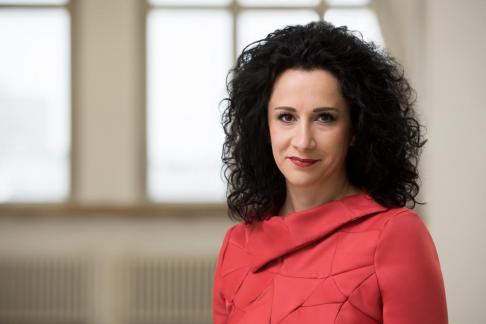 Zora Jaurová
Zora Jaurová
Zora Jaurová
Zora Jaurova – film producer, cultural and creative industries policy expert, Vice-chairwomen of Progressive Slovakia. She was a director of national agency for EU cultural programmes and a Slovak representative in Cultural Affairs Committee in the Council of EU. For several years, she was the vice-president of European advocacy platform Culture Action Europe. She was the co-author and director of Kosice – European Capital of Culture 2013 project. She is the President of Slovak Creative Industry Forum, former Board Member of Slovak Arts Council, member of policy platform in European Creative Industry Alliance and member of prestigious Ateliers du Cinéma Européen (ACE producers). She is a film producer and producing partner in Slovak film production company MPhilms. She is one of the founders and Vice-chairwoman of political party Progressive Slovakia.
Zora Jaurova – film producer, cultural and creative industries policy expert, Vice-chairwomen of Progressive Slovakia. She was a director of national agency for EU cultural programmes and a Slovak representative in Cultural Affairs Committee in the Council of EU. For several years, she was the vice-president of European advocacy platform Culture Action Europe. She was the co-author and director of Kosice – European Capital of Culture 2013 project. She is the President of Slovak Creative Industry Forum, former Board Member of Slovak Arts Council, member of policy platform in European Creative Industry Alliance and member of prestigious Ateliers du Cinéma Européen (ACE producers). She is a film producer and producing partner in Slovak film production company MPhilms. She is one of the founders and Vice-chairwoman of political party Progressive Slovakia.
_(1)_sideBlock.JPG) Dániel Levente Pál
Dániel Levente Pál
Dániel Levente Pál
Since 1999, he has published several translations of English, Portuguese, French and Galego literature in a number of Hungarian anthologies and magazines, since 2000, he has also published his own literary works. He is the author of four poetry books and two collection of short stories. His works have been translated into English, German, Spanish, Portuguese, Thai, Chinese, Romanian and Arabic. Since January 2016, he has worked for the Capital Circus of Budapest as a writer-dramaturge: in co-operation with world-famous circus artists, he has created more than a dozen circus shows until now that cc. 2.000.000 people came to see. Since January 2020, he has been the General Director of the Petőfi Literary Fund.
Relevant prizes and awards: Scholarship of Instituto Camões (Portugal, 2003); Award Medal of the Hungarian Association of Special Education (Hungary, 2009); Creative Scholarship of MASZRE (Hungary, 2009); Medalha Comemorativa (for bilateral literary organizing work, Brazil, 2017 and 2018); Staféta Prize (for emerging theatre makers, Hungary, 2019); Tudor Arghezi Prize (for literary works; Romania, 2019); Special Prize of the 13th International Circus Festival of Budapest (for the direction of Saint Witch, Hungary, 2020).
Since 1999, he has published several translations of English, Portuguese, French and Galego literature in a number of Hungarian anthologies and magazines, since 2000, he has also published his own literary works. He is the author of four poetry books and two collection of short stories. His works have been translated into English, German, Spanish, Portuguese, Thai, Chinese, Romanian and Arabic. Since January 2016, he has worked for the Capital Circus of Budapest as a writer-dramaturge: in co-operation with world-famous circus artists, he has created more than a dozen circus shows until now that cc. 2.000.000 people came to see. Since January 2020, he has been the General Director of the Petőfi Literary Fund.
Relevant prizes and awards: Scholarship of Instituto Camões (Portugal, 2003); Award Medal of the Hungarian Association of Special Education (Hungary, 2009); Creative Scholarship of MASZRE (Hungary, 2009); Medalha Comemorativa (for bilateral literary organizing work, Brazil, 2017 and 2018); Staféta Prize (for emerging theatre makers, Hungary, 2019); Tudor Arghezi Prize (for literary works; Romania, 2019); Special Prize of the 13th International Circus Festival of Budapest (for the direction of Saint Witch, Hungary, 2020).
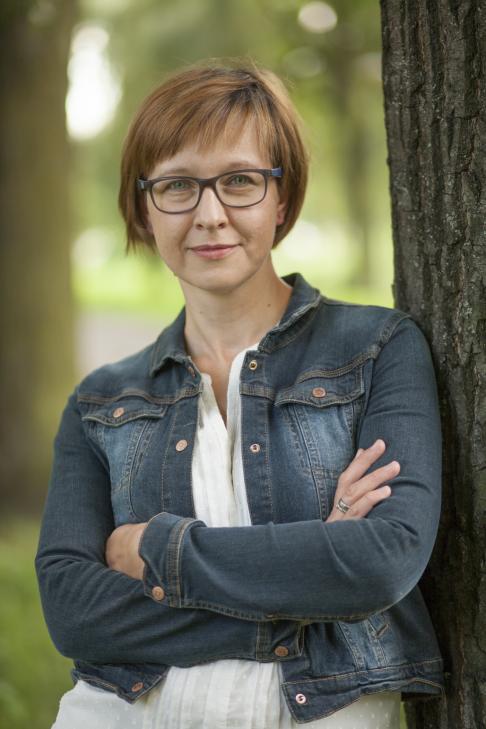 Anna Lach
Anna Lach
Anna Lach
Animator and manager with practical experience in the different fields and sectors of culture: theatre, museum, cultural centre; education and animation, fundraising, coordination of projects, accessibility. Currently works in the Aleksander Zelwerowicz National Academy of Dramatic Art in Warsaw, but also cooperates with Polish and international independent organisations, mostly for international training programmes.
Animator and manager with practical experience in the different fields and sectors of culture: theatre, museum, cultural centre; education and animation, fundraising, coordination of projects, accessibility. Currently works in the Aleksander Zelwerowicz National Academy of Dramatic Art in Warsaw, but also cooperates with Polish and international independent organisations, mostly for international training programmes.
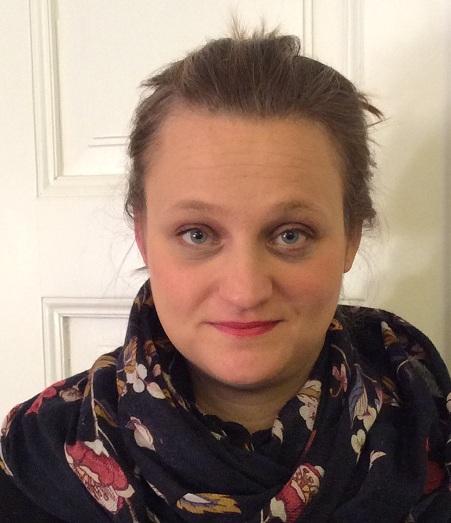 Barbora Grečnerová
Barbora Grečnerová
Barbora Grečnerová
Barbora Grečnerová graduated from the Faculty of Arts of Charles University in Prague. She has published several translations from Norwegian and writes reviews on contemporary Scandinavian literature. She has professional experience in management of international educational programmes financed by EU and Norway Grants.
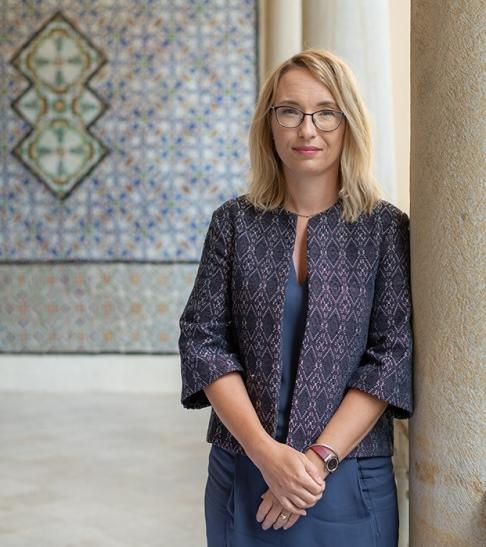 Dominika Kasprowicz
Dominika Kasprowicz
Dominika Kasprowicz
Academic researcher and cultural manager, PhD (Degree) in Political Science (2010), Associate Professor at the Jagiellonian University (Institute of Journalism, Media and Social Communication), holder of the European Diploma in Cultural Management, since 2016 director of the Villa Decius, Poland. Member of an Executive Board of "SO-CLOSE Enhancing Social Cohesion through Sharing the Cultural Heritage of Forced Migrations" H2020 project, Member of the Interdisciplinary Team of OPEN KRAKOW Programme. Her research area includes cultural diplomacy and management, political communication, populism and social innovations in politics. Recently co-authored publications: "Communicating Populism. Comparing Actor Perceptions, Media Coverage, and Effects on Citizens in Europe", Routledge, 2019, "Politics, Society and the Economy in Contemporary Poland. An Introduction", Scholar 2016.
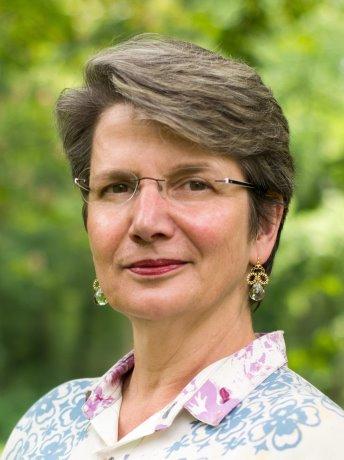 Angelika Eder
Angelika Eder
Angelika Eder
Director of Genshagen Foundation and Head of “ Art and Cultural Mediation in Europe" department. Born in Munich, studied history and German in Freiburg and Hamburg, she also holds a PHD in History. In years ‘94-’96 she was DAAD-lecturer at the German Department at the University of Liverpool (DAAD=German Academic exchange service). Later on researcher at the Contemporary History Research Centre in Hamburg, where since 2000 she led the “Workshop of Memories” (big oral history collection). 2002-2005 she worked in the Department of Culture at the Headquarter of Goethe-Institut in Munich. In 2005-2009 she was the director of Goethe-Institut in Krakow, 2009-2013 she managed the project activities with focus on regional issues at Goethe-Institut in Prague (Head office of Central Europe). In 2013-2017 Director of Goethe-Institut St. Petersburg.
Director of Genshagen Foundation and Head of “ Art and Cultural Mediation in Europe" department. Born in Munich, studied history and German in Freiburg and Hamburg, she also holds a PHD in History. In years ‘94-’96 she was DAAD-lecturer at the German Department at the University of Liverpool (DAAD=German Academic exchange service). Later on researcher at the Contemporary History Research Centre in Hamburg, where since 2000 she led the “Workshop of Memories” (big oral history collection). 2002-2005 she worked in the Department of Culture at the Headquarter of Goethe-Institut in Munich. In 2005-2009 she was the director of Goethe-Institut in Krakow, 2009-2013 she managed the project activities with focus on regional issues at Goethe-Institut in Prague (Head office of Central Europe). In 2013-2017 Director of Goethe-Institut St. Petersburg.
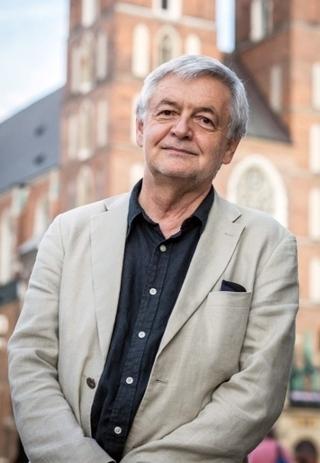
Jan Piekło
Ambassador of Republic of Poland to Ukraine and former director of the Polish-Ukrainian Cooperation Foundation (PAUCI) which manages the trans-border projects with Ukraine, Moldova, Georgia and Armenia. Previously program director for ZNAK Foundation in Krakow and the editor of “Tygodnik Powszechny”. As a journalist, he covered the Romanian Revolution and war in the former Yugoslavia. Author of two documentary books on the Balkans and a novel Scent of the Angel which is based on his work experience in the Balkans and Eastern Europe. He has been working for the Polish and international media. As a conflict resolution journalism trainer and media consultant he co-operated with the Rutgers University of New Jersey, MU Columbia School of Journalism, Jagiellonian University of Krakow, IREX Pro Media, Groeningen University and other institutions. He was involved in journalism and civil society trainings in Bosnia, Slovakia, Ukraine, Romania and Poland. From 2020, chairman of the board of the Villa Decius Association.
Ambassador of Republic of Poland to Ukraine and former director of the Polish-Ukrainian Cooperation Foundation (PAUCI) which manages the trans-border projects with Ukraine, Moldova, Georgia and Armenia. Previously program director for ZNAK Foundation in Krakow and the editor of “Tygodnik Powszechny”. As a journalist, he covered the Romanian Revolution and war in the former Yugoslavia. Author of two documentary books on the Balkans and a novel Scent of the Angel which is based on his work experience in the Balkans and Eastern Europe. He has been working for the Polish and international media. As a conflict resolution journalism trainer and media consultant he co-operated with the Rutgers University of New Jersey, MU Columbia School of Journalism, Jagiellonian University of Krakow, IREX Pro Media, Groeningen University and other institutions. He was involved in journalism and civil society trainings in Bosnia, Slovakia, Ukraine, Romania and Poland. From 2020, chairman of the board of the Villa Decius Association.


